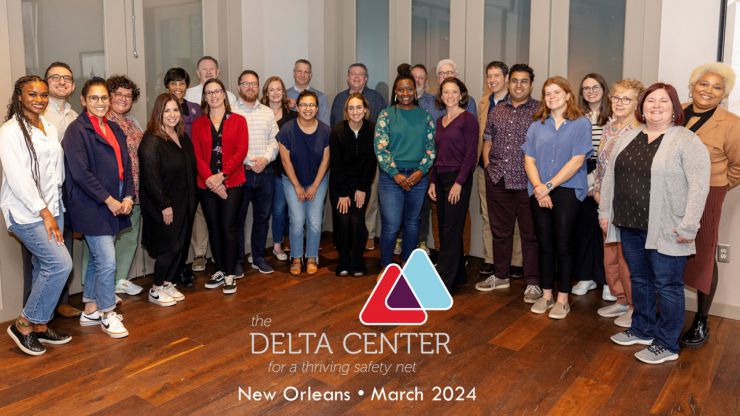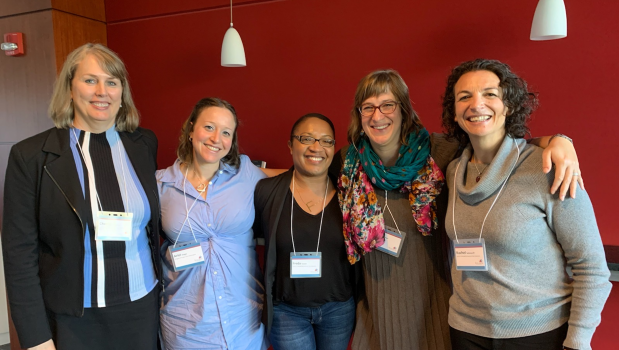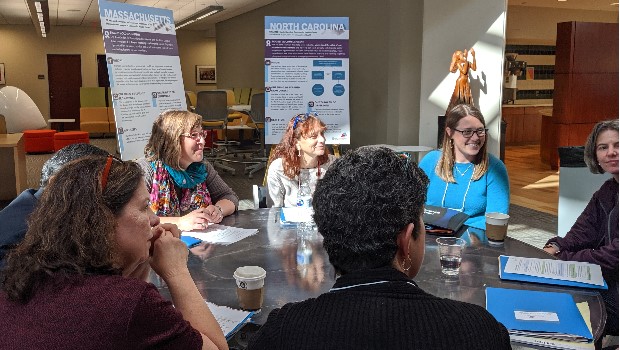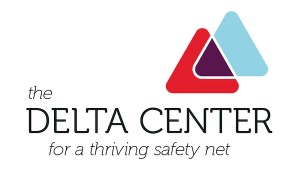Partnering to advance health equity in the safety net

Kelsey Stefanik-Guizlo shares promising equity work led by Delta Center for a Thriving Safety Net grantees nationwide
Kelsey Stefanik-Guizlo, MPH, is a collaborative scientist with the Center for Accelerating Care Transformation (ACT Center) at Kaiser Permanente Washington Health Research Institute
For the last several years, I’ve had the pleasure of being part of the Delta Center for a Thriving Safety Net, a national initiative to improve integration of primary care and behavioral health through policy and practice change in safety net settings — federally qualified health centers, community mental health centers, and other facilities that provide care regardless of a person’s ability to pay. Led by JSI Research & Training Institute, Inc. (JSI) with 2 phases of funding from the Robert Wood Johnson Foundation, the Delta Center has awarded nearly $5 million in grants across 19 states through its State Learning & Action Collaborative. Over the past 6 years, these grants have brought together state-based primary care associations and behavioral health state associations to develop and implement policies and practices that better meet the needs of the millions of people across the country served by the safety net.
The Center for Accelerating Care Transformation (ACT Center) has been a key partner in the Delta Center since its launch in 2018. My role has been to serve as a Delta Center coach — working alongside grantees to provide tailored support and technical assistance for their collective action projects. With the initiative winding down, I recently joined our network of Delta Center grantees, coaches, and national partners in New Orleans to exchange key insights and lessons learned at our final in-person convening. It was exciting to learn about the many ways grantees are continuing their promising work to cultivate policies and practices that advance health equity and promote patient centeredness in safety-net settings.
Illustrating what health equity looks like in practice
Advancing health equity has always been a Delta Center goal, but we really sharpened our focus on it during our second phase of funding. We’ve been talking with grantees about equity on an ongoing basis, with an emphasis on what it really looks like in practice.
For example, at our recent convening, I had the pleasure of facilitating a panel discussion on partnership building and power sharing as strategies for putting equity concepts into practice. The goal was to encourage state associations to consider how they can expand their existing partnerships and engagement to new people and organizations, particularly people with lived experience and community groups. The panel featured Michelle Ponce from the Association of Community Mental Health Centers of Kansas, Jon Zasada from the Alaska Primary Care Association, Deborah Riddick, a consumer-engagement expert at Alternate Frame, and Keris Jän Myrick, a national leader in mental health innovation and peer workforce development at Inseparable who has lived experience managing a behavioral health condition.
Our discussion explored power sharing, considerations and strategies for engaging new partners, and how these activities can be tailored to where an association is in their equity work. The panelists also emphasized that this work happens along a continuum. Given the importance of equity and engagement activities, organizations sometimes get stuck in the planning phase because they are worried about making mistakes. A better approach is to plan thoughtfully and get started, and then be mindful, stay open to feedback, and address mistakes responsively when they happen.
How grantees are embedding equity in their ongoing efforts
Delta Center grantees nationwide are doing a lot of important, technical work to improve state policies and practices to support integrated primary care and behavioral health. Here are a few standout examples of how they’re continuing to focus on equity in this work.
- First, in Alaska, grantees are educating policymakers about the need for equitable funding and administrative requirements between behavioral health and physical health care in the Alaska Medicaid program. The team is also bringing together the lived experience workforce — including community health representatives from Native communities, peer support specialists, and community health workers — to share their experiences and identify common needs.
- Second, grantees in Kansas are strengthening the focus on equity and community perspectives in the state’s community needs assessment process. They’re currently pursuing ways to better integrate consumer voice into community needs assessments that hospitals, federally qualified health centers, and community behavioral health centers are required to complete. The team is working closely with health care and public health partners on this work.
- Finally, in Oklahoma (which is one of the states I coach), grantees are pursuing contracts that include value-based payment structures as the state shifts to Medicaid managed care this year. Additionally, they are working closely with the state’s new Medicaid managed care organizations to ensure their advisory boards include people who receive care from federally qualified health centers and community behavioral health centers. The team will help identify board members and support those individuals in getting oriented to their roles.
Key learnings from working with Delta Center grantees
We have learned a lot from the state grantees over the course of this project. Here are 3 important takeaways that stand out to me.
- Different states face different challenges when trying to integrate and advance health equity. For example, in conservative states like Oklahoma, health equity can be a contentious issue. But that doesn’t mean that there aren’t ways to move the needle. This Delta Center story about the Oklahoma Transformative Care Symposium highlights some inspiring work they’ve done to continue this essential work. I am also interviewing 5 Delta Center state teams about their strategies for advancing health equity in conservative sociopolitical contexts, and we’ll be publishing the key themes and lessons learned later this year.
- Centering the voices of communities, individuals, and families in efforts to change policy and practice can take many forms, and there is no one overarching playbook on how to do it. The most important thing is to seek opportunities to build new relationships, ideally before you need them for a specific policy goal, and to be mindful and intentional about how power is shared as partnerships grow and develop.
- State primary care and behavioral health state associations play a critical role in representing the experiences and needs of safety net providers, staff, and care recipients. They are experts in the policy and practice change work they do. When they work together, there’s tremendous opportunity to implement equitable, patient-centered policies and practices to benefit the millions of people who receive care in the safety net.
Related news

How Delta Center is working with consumers to transform behavioral health care in Oregon

Ariel Singer talks about personal experiences with behavioral health services and why easier access is important


